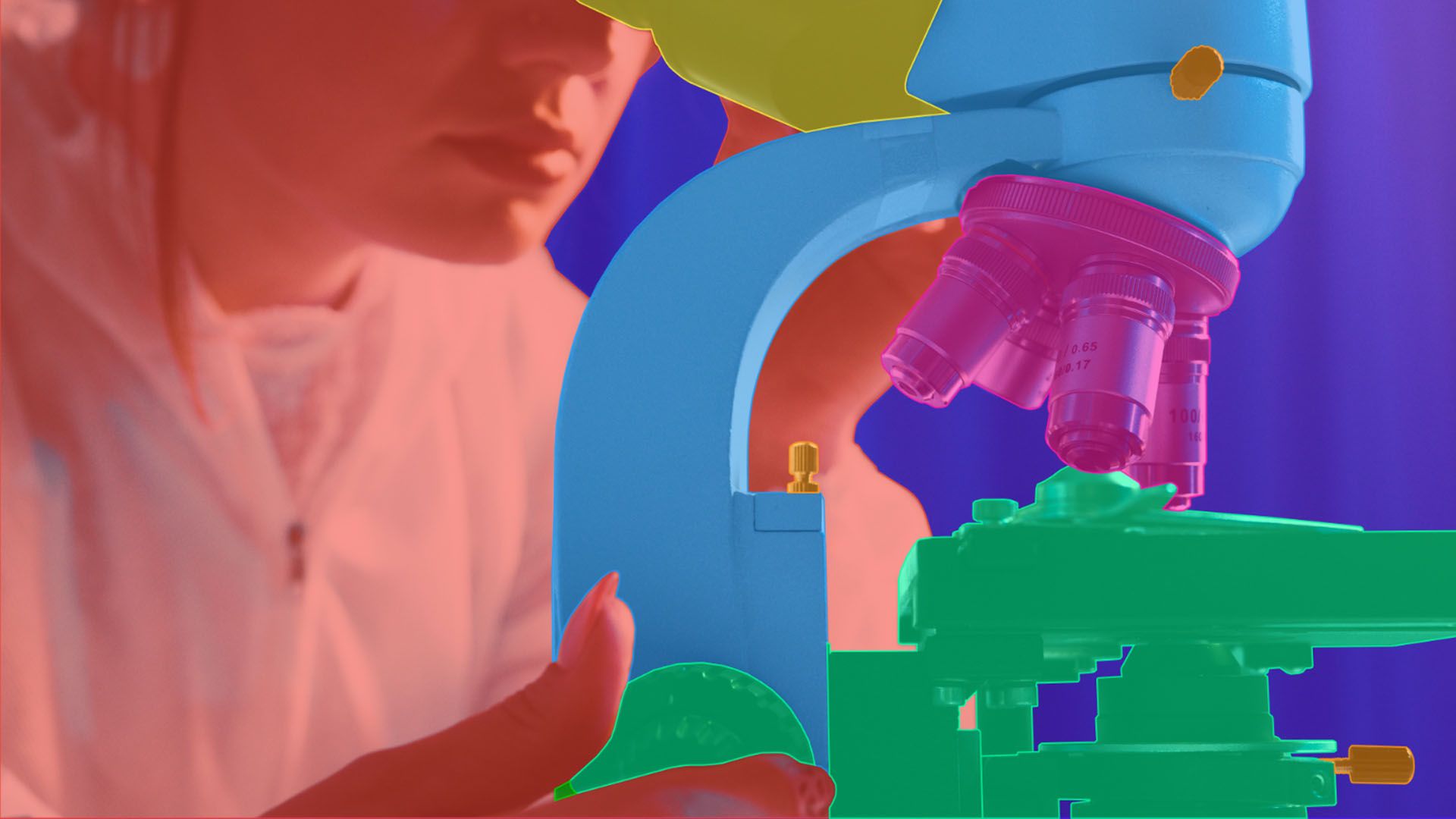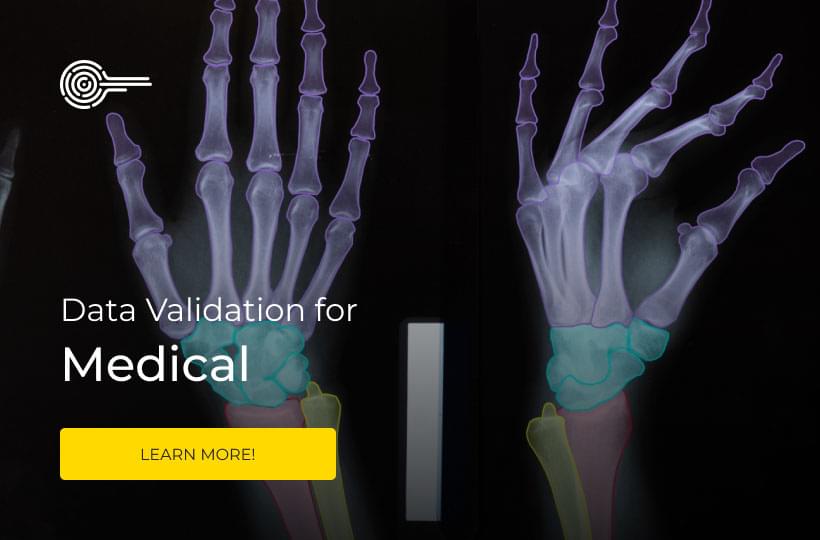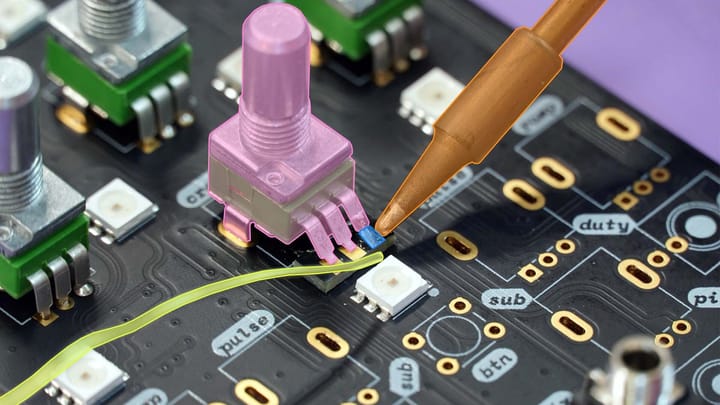Transforming Healthcare with AI Model Applications

Healthcare systems worldwide are facing significant challenges, with an increasing demand for care and a projected shortfall of healthcare professionals. As aging populations and changing patient expectations continue to put pressure on healthcare resources, there is a need for innovative solutions to improve care outcomes, enhance productivity, and optimize the use of healthcare professionals' time.
Artificial intelligence (AI) model applications in healthcare have the potential to revolutionize the industry by leveraging advanced technologies such as machine learning, deep learning, and predictive analytics. AI-powered healthcare solutions can transform diagnostics, treatment, and care delivery, providing personalized and proactive care management for patients.

Machine learning algorithms can analyze vast amounts of healthcare data, enabling more accurate medical diagnostics and early disease detection. Medical image analysis with machine learning can enhance the accuracy and efficiency of disease detection, reducing false results and unnecessary procedures.
Predictive analytics in medicine empowers healthcare professionals to identify patients at risk of developing or worsening conditions, allowing for early intervention and more effective treatment plans. AI-powered systems like IBM's Watson and Google's DeepMind Health are paving the way for AI integration in healthcare organizations, enabling the use of vast health data for improved diagnosis and treatment.
While AI in healthcare holds immense promise, it is crucial to address ethical considerations and mitigate potential risks associated with its implementation. Striking the right balance between technology and the human touch remains essential to provide compassionate and patient-centered care.
Key Takeaways:
- AI model applications in healthcare can potentially revolutionize care outcomes and delivery.
- Machine learning and deep learning algorithms can enhance medical diagnostics and disease detection.
- Predictive analytics in medicine enables proactive care management and early intervention.
- AI-powered healthcare solutions like IBM's Watson and Google's DeepMind Health leverage vast health data for improved diagnosis and treatment.
- Ethical considerations and potential risks associated with AI in healthcare need to be addressed.
The Impact of AI in Healthcare Today
AI is already making a significant impact in healthcare. It is being used to analyze large amounts of healthcare data and improve care delivery. AI applications include natural language processing, image analysis, and predictive analytics based on machine learning. For example, AI can help detect diseases like cancer more accurately and in their early stages. It can also be used to oversee early-stage heart disease and identify patients at risk of developing or worsening a condition. Additionally, AI is being used to improve the coordination of care plans and help patients better manage their long-term treatment programs. AI-powered systems like IBM's Watson and Google's DeepMind Health are enabling healthcare organizations to leverage vast amounts of health data and enhance diagnosis and treatment.
| AI Applications in Healthcare | Benefits |
|---|---|
| Natural Language Processing | - Enables analysis of large volumes of medical literature and patient records to extract relevant information and assist in clinical decision-making. - Enhances communication between patients and healthcare providers through chatbots and voice recognition technologies. |
| Image Analysis | - Improves accuracy and speed in interpreting medical images, aiding in the early detection of diseases. - Reduces false-positive and false-negative results, minimizing unnecessary procedures and biopsies. |
| Predictive Analytics | - Utilizes machine learning algorithms to predict disease progression and identify patients at risk. - Enables personalized treatment plans and interventions that can improve patient outcomes. |
AI in healthcare has the potential to improve diagnosis and treatment outcomes, optimize resource allocation, and enhance patient experiences. By leveraging AI technologies, healthcare professionals can make more informed decisions and provide personalized care. However, it is essential to address ethical considerations, data privacy, and potential biases in AI algorithms to ensure responsible and equitable use of these technologies in healthcare.
Enhancing Consumer Health and Proactive Care Management
AI is revolutionizing healthcare by empowering individuals to take control of their health and well-being. Through consumer health applications and wearable devices, AI encourages healthier behavior and provides individuals with valuable insights into their day-to-day patterns and needs. This proactive approach to care management allows individuals to make informed decisions and prioritize their health. Additionally, AI enables healthcare professionals to better understand the needs of their patients and provide personalized feedback, guidance, and support.
By leveraging AI-powered healthcare solutions, organizations can focus on preventive care, reducing the need for frequent doctor visits and hospitalizations. Healthcare data analytics play a crucial role in identifying trends, patterns, and risk factors, enabling healthcare providers to intervene early and tailor interventions to the specific needs of each patient.
Through the application of AI, individuals can actively track their vital signs, exercise routines, sleep patterns, and overall health status. This data can help them identify potential health risks and make informed decisions to improve their well-being. For instance, AI-powered wearable devices can provide real-time feedback and encourage individuals to engage in healthy behaviors, such as physical activity and stress management.
| AI-Powered Healthcare Solutions | Benefits |
|---|---|
| Consumer health applications | Encourages healthier behavior and provides valuable insights |
| Wearable devices | Tracks vital signs, exercise routines, sleep patterns, and overall health status |
| Healthcare data analytics | Identifies trends, patterns, and risk factors for personalized interventions |
AI-powered healthcare solutions also enable healthcare professionals to deliver personalized care remotely and improve patient outcomes. Patients can receive ongoing support, guidance, and treatment adjustments based on their individual needs, reducing the burden on both patients and healthcare providers.
By embracing AI in healthcare, we can promote proactive health management, improve patient engagement, and enhance overall well-being. The potential of AI to transform consumer health and proactive care management is vast, and its continued development and implementation will undoubtedly revolutionize the healthcare industry.
Revolutionizing Disease Detection and Diagnosis
One of the key applications of AI in healthcare is in the field of disease detection and diagnosis. AI algorithms leverage the power of artificial intelligence to analyze medical images, such as mammograms, with higher accuracy and greater speed compared to traditional methods. This advanced technology has the potential to revolutionize the way diseases are detected and diagnosed, improving patient outcomes and transforming the healthcare industry.
AI's ability to analyze medical images with precision can help reduce false results and unnecessary biopsies, leading to more efficient and targeted treatment plans. By leveraging medical image analysis with machine learning, healthcare professionals can make more informed decisions and provide timely interventions to patients.
For example, AI is being used to detect and monitor early-stage heart disease. By analyzing medical images and incorporating machine learning algorithms, AI can provide valuable insights to doctors, enabling them to identify potential risks and implement preventive measures. This proactive approach helps in preventing the progression of heart disease, ultimately improving the patient's quality of life.
Furthermore, AI-assisted disease detection and diagnosis through medical imaging streamline the process, reducing waiting times and allowing for quicker treatment decisions. The accuracy and efficiency offered by AI can lead to earlier diagnosis, facilitating timely interventions and potentially saving lives.
Medical image analysis with machine learning and artificial intelligence in medical diagnostics has the potential to significantly impact healthcare by enhancing disease detection and diagnosis. Through the combination of cutting-edge technology and expert medical knowledge, healthcare professionals can improve patient outcomes and revolutionize the way diseases are managed.
| Benefits of AI in Disease Detection and Diagnosis | Challenges and Considerations |
|---|---|
|
|
Improving Drug Research and Development
AI is revolutionizing the field of drug research and development, offering transformative solutions that streamline processes and reduce costs. By harnessing the power of AI algorithms, researchers can efficiently analyze vast datasets and identify potential drug candidates with greater accuracy and speed.
The application of AI in drug research extends beyond traditional methods by facilitating the repurposing of existing drugs for new indications. This approach not only expedites the time to market for new treatments but also increases accessibility, ultimately improving patient outcomes.

The integration of predictive analytics in medicine empowers researchers and pharmaceutical companies to make data-driven decisions, accelerating the discovery of novel therapies. AI technology can identify patterns and correlations in complex datasets, providing valuable insights that guide the development of more effective treatments.
Moreover, the utilization of AI in drug development holds the potential to revolutionize medical breakthroughs. By automating laborious tasks and enhancing data analysis capabilities, AI expedites the identification and characterization of promising drug candidates, leading to faster development timelines.
Ultimately, the application of AI in drug research and development represents a significant opportunity to reshape the landscape of pharmaceutical discovery and improve patient care. By leveraging the power of predictive analytics and AI-driven technologies, the healthcare industry can drive innovation and meet the evolving needs of patients around the world.
Leveraging AI in Drug Research and Development
| Benefit | Description |
|---|---|
| Accelerated Discovery | AI algorithms analyze vast datasets to identify potential drug candidates. |
| Target Identification | AI enables the identification of specific molecular targets for drug development. |
| Repurposing Existing Drugs | AI facilitates the repurposing of drugs for new indications, reducing time and costs. |
| Data-driven Decision Making | Predictive analytics enables researchers to make informed decisions based on data insights. |
Enhancing Medical Education and Training
AI is revolutionizing medical education and training through the use of naturalistic simulations and intelligent tutoring systems. Trainees can now engage in realistic scenarios and receive personalized feedback and guidance from AI-powered systems. This enhances the learning experience and allows trainees to improve their clinical decision-making skills. AI can be accessed on various devices, including smartphones, making training more accessible and flexible. With the integration of AI into medical education, healthcare professionals can continuously update their knowledge and skills.
Medical education and training are essential for healthcare professionals to acquire the knowledge and skills required to provide high-quality care. However, traditional training methods have limitations in providing realistic and personalized learning experiences. This is where AI comes into play, transforming medical education and training.
Through the use of naturalistic simulations, AI enables trainees to immerse themselves in realistic scenarios that mirror real-life patient encounters. These simulations can simulate a wide range of medical conditions, enabling trainees to practice their clinical skills and decision-making in a safe and controlled environment. AI-powered systems analyze trainees' actions and provide immediate feedback, highlighting areas for improvement and offering guidance to enhance their skills.
AI also enhances the accessibility and flexibility of medical education and training. With the integration of AI into mobile applications and online platforms, trainees can access educational resources and simulations anytime, anywhere. This eliminates the constraints of traditional classroom-based training and enables healthcare professionals to continuously update their knowledge and skills. Whether it's reviewing medical textbooks, participating in interactive case discussions, or engaging in virtual patient encounters, AI facilitates lifelong learning for healthcare professionals.
The Benefits of AI in Medical Education and Training
The integration of AI in medical education and training brings numerous benefits to healthcare professionals, including:
- Realistic and personalized learning experiences: AI-powered simulations provide trainees with realistic scenarios and personalized feedback, enhancing their clinical decision-making skills.
- Improved accessibility and flexibility: AI-powered educational resources can be accessed on various devices, making training accessible and flexible for healthcare professionals.
- Continuous learning: With AI, healthcare professionals can continuously update their knowledge and skills, staying up-to-date with the latest advancements in medical practice.
- Reduced risk to patients: AI-powered simulations allow trainees to practice their skills without putting real patients at risk, ensuring patient safety.
- Enhanced collaboration and knowledge sharing: AI-powered platforms enable healthcare professionals to collaborate, discuss cases, and share knowledge, fostering a culture of continuous learning and improvement.
The Future of AI in Medical Education and Training
The use of AI in medical education and training is expected to continue to evolve and expand. As AI technologies advance, we can expect greater sophistication in naturalistic simulations, providing even more realistic and immersive learning experiences. AI-powered systems will become more intelligent and adaptive, offering personalized training paths tailored to each trainee's needs and learning style.
Furthermore, AI has the potential to revolutionize assessment methods in medical education. AI algorithms can analyze trainees' performance in simulations, identifying strengths and areas for improvement. This data-driven approach to assessment can provide valuable insights into trainees' progress and enable targeted interventions to enhance their learning outcomes.
In conclusion, AI is transforming medical education and training, providing healthcare professionals with realistic and personalized learning experiences. By harnessing the power of AI, trainees can enhance their clinical decision-making skills and stay updated with the latest advancements in medical practice. The integration of AI in medical education is shaping the future of healthcare, driving continuous learning and improvement.
| Benefits of AI in Medical Education and Training |
|---|
| Realistic and personalized learning experiences |
| Improved accessibility and flexibility |
| Continuous learning |
| Reduced risk to patients |
| Enhanced collaboration and knowledge sharing |
Conclusion
AI model applications in healthcare have the potential to transform the industry, revolutionizing diagnostics, treatment, and care delivery. With the integration of artificial intelligence in medical diagnostics, machine learning in healthcare, and predictive analytics in medicine, healthcare organizations can enhance patient outcomes and streamline healthcare processes. By leveraging healthcare data analytics and AI-powered solutions, healthcare professionals can make more informed decisions and deliver personalized care management.
One significant area where AI is making strides is in disease detection and diagnosis. Through medical image analysis with machine learning and deep learning in healthcare, AI algorithms can analyze medical images with high accuracy and speed. This capability facilitates early detection of diseases like cancer, leading to better treatment outcomes and reduced unnecessary biopsies. AI is also enhancing drug research and development by streamlining the process and reducing costs, potentially accelerating medical breakthroughs and improving patient access to new treatments.
In addition to clinical applications, AI is empowering individuals to take control of their health and well-being. By leveraging AI healthcare technology, healthcare organizations can provide consumer health applications and wearable devices that encourage healthier behaviors and provide personalized insights. This proactive approach to healthcare enables individuals to better manage their long-term treatment programs, reducing the need for frequent doctor visits. Furthermore, AI is revolutionizing medical education and training through the use of naturalistic simulations and intelligent tutoring systems, equipping healthcare professionals with the skills and knowledge needed to deliver high-quality care.
While there are ethical considerations and potential risks associated with AI in healthcare, the potential benefits far outweigh the challenges. By harnessing the power of AI model applications in healthcare, we can unlock new possibilities and improve the overall healthcare experience for patients and healthcare professionals alike. The future of healthcare is AI-powered, and it holds great promise for transforming the way we diagnose, treat, and manage health conditions.
FAQ
How can AI transform healthcare?
AI has the potential to revolutionize healthcare by improving care outcomes, enhancing productivity and efficiency, and freeing up healthcare professionals' time to focus on patient care.
What are some AI applications in healthcare?
AI applications in healthcare include natural language processing, image analysis, and predictive analytics based on machine learning. These technologies can help detect diseases more accurately, improve the coordination of care plans, and assist patients in managing their long-term treatment programs.
How can AI improve disease detection and diagnosis?
AI algorithms can analyze medical images with higher accuracy and speed compared to traditional methods. This can help reduce false results and unnecessary biopsies, leading to more efficient and accurate disease detection and diagnosis.
What is the role of AI in drug research and development?
AI is streamlining the drug research and development process by analyzing large datasets and identifying potential drug candidates more efficiently. It can also facilitate the repurposing of existing drugs for new indications, reducing the time to market for new drugs and increasing their accessibility to patients.
How is AI enhancing medical education and training?
AI is revolutionizing medical education and training through the use of naturalistic simulations and intelligent tutoring systems. Trainees can engage in realistic scenarios and receive personalized feedback and guidance, improving their clinical decision-making skills and continuously updating their knowledge and skills.
What are the potential benefits of AI in healthcare?
AI model applications in healthcare have the potential to improve diagnostics, treatment, and care delivery, enhance patient outcomes, and streamline healthcare processes. It can empower individuals to take control of their health and well-being and equip healthcare professionals with the skills and knowledge needed to deliver high-quality care.




